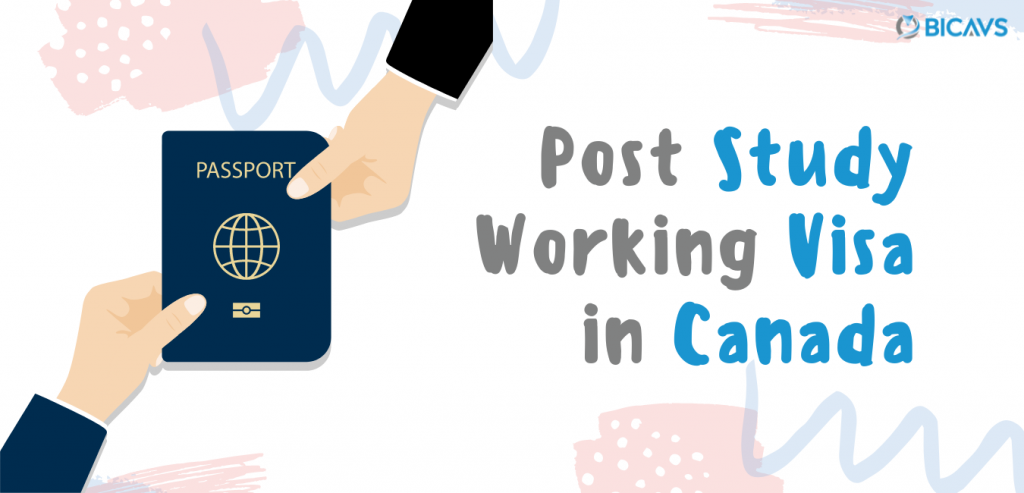International students who complete an eligible Canadian post-secondary program may apply for a Post-Graduation Work Permit (PGWP).
Canada has introduced special measures during the coronavirus pandemic to enable international students overseas to complete their Canadian education will abroad and still be eligible for a PGWP. In addition, Canada is offering a new open work permit of up to 18-months in duration to PGWP holders currently in the country.
Overview
Canada offers the Post-Graduation Work Permit (PGWP) as part of its efforts to attract international students and retain them as immigrants. The PGWP is valid for up to three years (the actual length of each person’s PGWP depends on the length of their Canadian educational program). The PGWP is an open work permit, which allows international graduates to work for any Canadian employer without needing a job offer. A major benefit of the PGWP is it enables international graduates to gain professional work experience in Canada. Such work experience is helpful when PGWP holders go on to apply for Canadian immigration. Many of Canada’s over 100 different immigration programs reward candidates who have studied and/or worked in Canada. Generally speaking, a PGWP holder needs to gain one year of professional work experience in a National Occupational Classification (NOC) code of 0, A, or B to then be eligible to apply for a Canadian permanent residence program.
Can I Study Overseas and Still Be Eligible for a PGWP?
Immigration, Refugees and Citizenship Canada has a special policy in place during the coronavirus pandemic that allows international students to complete their Canadian program while living overseas and still be eligible to obtain a PGWP when they move to Canada. To benefit from this policy you must:
- enrol at a Canadian Designated Learning Institution. DLIs are colleges and universities that are accredited by the Canadian government to welcome international students.
- you have begun or will begin a program between spring 2020 and fall 2021, or your program was already in progress in March 2020.
- have a study permit, OR approval for a study permit, OR apply for a study permit before starting your program and are eventually approved.
- meet all other PGWP criteria.
Coronavirus (COVID-19) Update for PGWP Holders
From January 27, 2021, until July 27, 2021, certain Post Graduation Work Permit holders may be eligible to apply for new open work permits of up to 18 months in duration. Immigration, Refugees and Citizenship Canada estimates that as many as 52,000 PGWP holders stand to benefit from this new open work permit.
To apply for an open work permit under this public policy, an applicant must meet the following 5 conditions:
- You possess a valid PGWP that expired on or after January 30, 2020 or a PGWP that expires in 4 months or less from the date of the application.
- You were in Canada as of January 27, 2021, when the policy took effect and have remained in Canada since this date.
- You possess valid temporary status, or lost your temporary status but have already applied to restore it or be applying for the restoration of your status.
- You include in your application you are applying for an open work permit under this policy.
- You have a valid passport. If your passport expires in under 18 months from the date of approval, your open work permit will only be valid for the same length of time. IRCC encourages you to ensure you possess a passport that is valid for at least 18 months from the date of approval.
What are the PGWP’s Eligibility Requirements?
To be eligible for a Post-Graduation Work Permit, international students must have:
- Completed studies in an academic, vocational or professional training program that is at least eight months long at an eligible Designated Learning Institution (DLI) List.
- Study program must lead to a degree, diploma or certificate.
- Held full-time student status in Canada during every academic session of the program or programs of study completed and included as part of their post-graduation work permit application;
- Note: Canada has waived this requirement during the coronavirus pandemic for certain international students. Exemptions may apply to those who have begun or will begin a program between spring 2020 and fall 2021, or those whose program was already in progress in March 2020. In addition, exceptions may apply for those who took a leave from their studies in their final academic session.
- Received a transcript and an official letter from the eligible DLI confirming that the applicant has met the requirements to complete their program of study;
- The transcript and official letter must be included in a post-graduation work permit application.
- Graduated from:
- a public post-secondary institution, such as
- a college
- a trade or technical school
- a university
- CEGEP (in Quebec)
- a private post-secondary school (in Quebec) that operates under the same rules as public schools in Quebec;
- a private secondary or post-secondary school (in Quebec) that offers qualifying programs of 900 hours or longer and results in the issuance of a diplôme d’études professionnelles (DEP) or an attestation de spécialisation professionnelle (ASP); or
- Canadian private school that can award degrees under provincial law (for example, Associate, Bachelor’s, Master’s or Doctorate) but only if the student was enrolled in a study program that leads to a degree as authorized by the province.
Note: Graduates of vocational and professional training programs in Quebec must meet additional PGWP criteria outlined by IRCC depending on the type of diploma issued.
How Long is a PGWP Valid For?
A PGWP is valid for anywhere between 8 months to 3 years. The actual length depends on the length of your program at a Canadian DLI. IRCC provides the following guidelines on its website:
- Completed program under 8 months: Not eligible for a PGWP
- Completed program between 8 months and less than 2 years: The PGWP will be valid for the same length of your study program (e.g., a 10-month program will result in a 10-month PGWP)
- Completed program of 2 years or more: PGWP will be valid for 3 years
- Completed more than one program: You may be able to combine your Canadian educational programs to get a PGWP as long as the programs are DLI eligible and each over 8 months in duration. The total length of the PGWP will correspond to the durations above.
What is the PGWP’s Application Deadline?
The deadline to apply for the Post-Graduation Work Permit is within 180 days (six months) of obtaining a transcript and an official letter from the eligible DLI confirming that the requirements to complete the program of study have been met.
If the study permit is set to expire before the marks have come in, candidates have two options:
- apply for a visitor record to stay in Canada longer; or
- leave Canada and apply for the PGWP
When applying, applicants must demonstrate that they either hold a valid study permit, held a study permit, or were authorized to study in Canada without the requirement to obtain a study permit under paragraphs 188(1)(a) and (b) of the Immigration and Refugee Protection Regulations.
What are the Required Supporting Documents for a PGWP Application?
While program officers may request additional documents, two important documents required at the time of applying are a letter confirming the completion of the program of study and an official transcript by their DLI.








